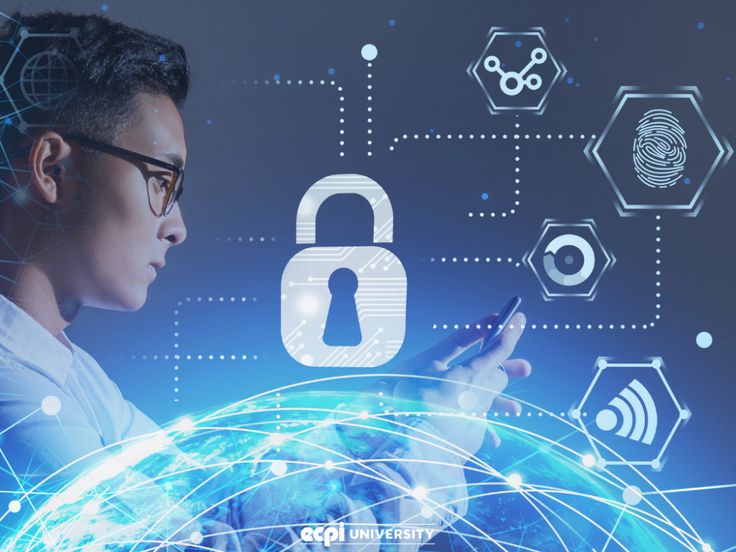In today’s digital age, cybersecurity is more important than ever before. With the growing prevalence of online threats such as hacking, phishing, and identity theft, it’s essential to take steps to protect your personal and business data. In this article, we’ll explore the importance of cybersecurity and provide tips for safeguarding your information.
First and foremost, it’s crucial to understand the potential risks associated with the use of technology. As we become increasingly reliant on digital devices and online services, we expose ourselves to a variety of threats. Hackers and cybercriminals can gain access to our data through unsecured networks, vulnerable software, and social engineering tactics. Additionally, human error can also lead to data breaches, such as leaving a device unattended or failing to update software.
So, what can we do to protect ourselves and our data? There are several steps we can take to minimize our risk of a cybersecurity breach. These include using strong and unique passwords, enabling two-factor authentication, keeping software up-to-date, avoiding public Wi-Fi networks, and being cautious of suspicious emails and links.
It’s also essential to stay informed about the latest threats and trends in cybersecurity. By keeping up-to-date with news and developments in the field, we can better understand how to protect ourselves and our businesses. Additionally, seeking the advice of cybersecurity experts can provide valuable insights and guidance on how to implement effective security measures.
In conclusion, cybersecurity is a critical concern in today’s age of technology. By taking proactive steps to protect our data and staying informed about the latest threats and trends, we can minimize our risk of a cybersecurity breach and keep our information safe and secure.
Are you concerned about the security of your personal and business data in today’s digital age? Cybersecurity threats such as hacking, phishing, and identity theft are on the rise, making it more important than ever to take steps to protect your information. In this article, we’ll explore the importance of cybersecurity and provide tips for safeguarding your data.
We’ll begin by discussing the potential risks associated with the use of technology, including vulnerable software and unsecured networks. We’ll also examine the ways in which human error can contribute to data breaches. By understanding these risks, we can better understand the importance of implementing effective cybersecurity measures.
We’ll then provide practical tips for protecting your data, including using strong passwords and two-factor authentication, avoiding public Wi-Fi networks, and staying cautious of suspicious emails and links. These tips can help you minimize your risk of a cybersecurity breach and keep your information safe.
In addition to these practical tips, we’ll also explore the importance of staying informed about the latest threats and trends in cybersecurity. By staying up-to-date with news and developments in the field, you can better understand how to protect yourself and your business. Seeking the advice of cybersecurity experts can also provide valuable insights and guidance on how to implement effective security measures.
Overall, this article is a must-read for anyone concerned about the security of their personal and business data. By following the tips and advice provided, you can minimize your risk of a cybersecurity breach and keep your information safe and secure in today’s age of technology.
What is cybersecurity and why is it important in today’s age of technology?

Cybersecurity refers to the practice of protecting computer systems, networks, and data from digital attacks, theft, and damage. As technology continues to advance and become more integrated into our daily lives, the importance of cybersecurity also increases. Cybercriminals can use a variety of techniques to gain unauthorized access to personal and business data, including hacking, phishing, and malware. A cybersecurity breach can result in significant financial and reputational damage, as well as potential legal liabilities. In addition, as more people work remotely and businesses move their operations online, the risk of cybersecurity threats increases. Therefore, it is crucial for individuals and businesses to take cybersecurity seriously and implement effective measures to protect their data.
What are the potential risks associated with the use of technology, and how can I protect my personal and business data?
There are several potential risks associated with the use of technology, including vulnerable software, unsecured networks, and human error. Hackers can exploit vulnerabilities in software and operating systems to gain unauthorized access to data, while unsecured networks such as public Wi-Fi can allow cybercriminals to intercept and steal data. Human error, such as failing to update software or using weak passwords, can also lead to data breaches.
To protect your personal and business data, there are several practical steps you can take. These include using strong and unique passwords, enabling two-factor authentication, keeping software up-to-date, avoiding public Wi-Fi networks, and being cautious of suspicious emails and links. It is also important to educate yourself and your employees about cybersecurity best practices, and to seek the advice of cybersecurity experts if needed.
What practical steps can I take to safeguard my data from cyber threats such as hacking, phishing, and identity theft?
To safeguard your data from cyber threats, you can take several practical steps. One of the most important steps is to use strong and unique passwords for all your accounts, and enable two-factor authentication whenever possible. It’s also important to keep your software up-to-date and install security updates as soon as they become available. You should avoid public Wi-Fi networks and use a virtual private network (VPN) when accessing the internet from a public network.
In addition, you should be cautious of suspicious emails and links. Phishing emails can trick you into providing sensitive information or downloading malware onto your device. You should also avoid clicking on links in emails or text messages from unknown or suspicious sources. Instead, type the URL directly into your browser or use a trusted search engine to find the website.
How can I stay informed about the latest threats and trends in cybersecurity, and where can I seek advice from cybersecurity experts?

Staying informed about the latest threats and trends in cybersecurity is crucial for protecting your personal and business data. There are several ways to stay up-to-date, including subscribing to cybersecurity news and blogs, attending industry conferences and events, and following cybersecurity experts on social media. It’s also important to seek advice from cybersecurity experts if you have any questions or concerns. You can consult with cybersecurity professionals, attend cybersecurity training sessions or webinars, or hire a cybersecurity consultant to help you implement effective security measures.
What are some common cybersecurity threats facing businesses, and how can they protect themselves?
Some common cybersecurity threats facing businesses include ransomware attacks, data breaches, and phishing scams. Businesses can protect themselves by implementing a strong cybersecurity plan that includes employee training, regular software updates, and regular data backups.
How can individuals protect themselves from identity theft?
Individuals can protect themselves from identity theft by monitoring their credit reports regularly, shredding sensitive documents before disposing of them, using secure passwords, and avoiding sharing sensitive information online or over the phone.
What are some emerging cybersecurity trends to watch out for?

Some emerging cybersecurity trends to watch out for include the use of artificial intelligence and machine learning to identify and prevent cyber threats, the increased use of cloud-based security solutions, and the development of blockchain technology to enhance security in financial transactions.
What are the legal implications of a cybersecurity breach?
The legal implications of a cybersecurity breach can include fines, lawsuits, and damage to a company’s reputation. Businesses may also be required to notify affected customers and take steps to prevent future breaches.
Conclusion:
Cybersecurity is an essential consideration in today’s age of technology. Cyber threats such as hacking, phishing, and identity theft pose a significant risk to personal and business data, and it is important to take practical steps to safeguard against these threats. By using strong passwords, enabling two-factor authentication, staying informed about the latest threats, and seeking the advice of cybersecurity experts, individuals and businesses can better protect themselves from cybersecurity breaches. By implementing effective security measures, we can help ensure that our data remains safe and secure in the digital age.

